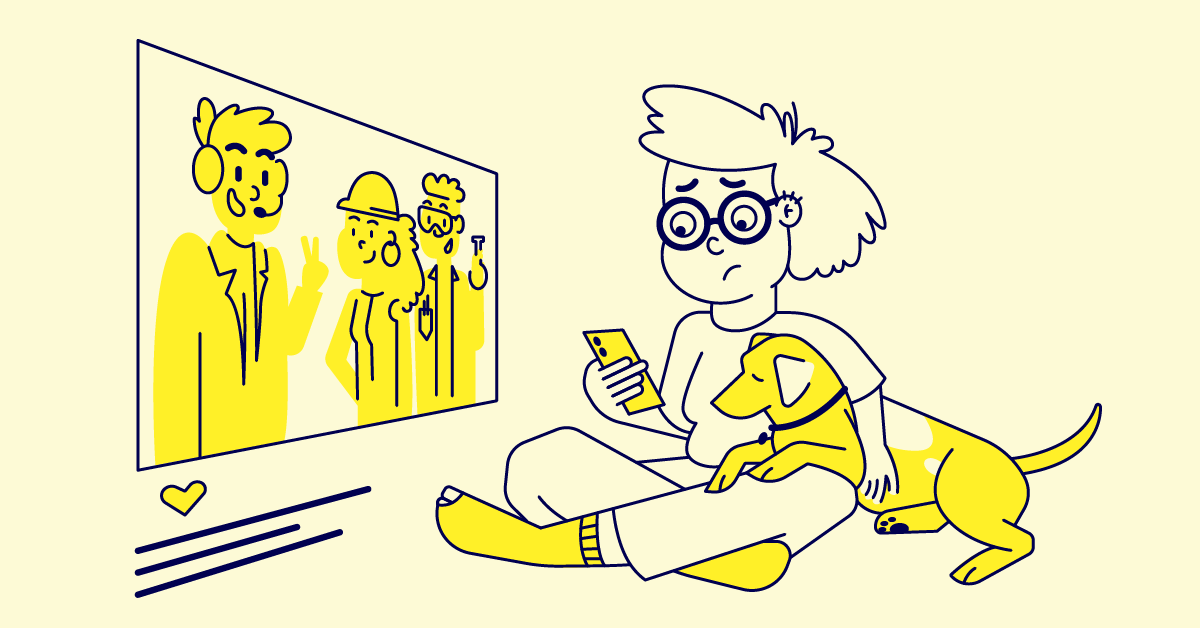8 tips for managing your smart devices at work and at home.
Generation Z, the Zoomers born between 1997 and 2012, was the first to grow up with social media and smart devices. As much as global real-time networking has enabled, it has also increasingly underlined its own challenges. Young adults are feeling worse or at least seeking treatment more and more. Burnouts during work life and studies are increasing. Everyone feels the pressure to keep up with the times as they seem to constantly speed up.
It is good to consciously pay attention to your own use of social media and the draw of your smart device screen. Too easily our ‘connected’ behaviour becomes so automated that its effects are no longer easy to identify.
Your social media presence matters
On the positive side, the benefits of social media include networking with peer groups far and wide. That would be challenging or even impossible without a virtual presence. Social media as a source of information and inspiration is also in a class of its own: it’s so easy to find, for example, relaxation exercises or join like-minded hobby groups.
Everything is a click away. But the same greatness is also the biggest drawback of social media. Faced with a constant stream of interactions, you get exhausted without even noticing. The filtered and attention-grabbing social media content often evokes feelings of jealousy, inferiority or failure. The lives of others are projected as perfect and successful.
Paradoxically, social media has contributed to increasing experiences of anxiety and loneliness. A 2018 study published in the journal Body Image looked at the effects of taking and posting selfies on young women's mood. Regardless of whether the photos were filtered or not, the posters' well-being, self-confidence and assessment of their attractiveness decreased. We live in the stream of these influences semi-unnoticed every day.
There are also many forms of cyberbullying and hate lurking in the shadows of social media. It fragments the ability to concentrate at work, focus on studies and disrupts free time.
Let us return to the old saying: “a good servant, but a bad master.” As long as social media remains harnessed for your own interests in a way that does not undermine healthy behaviours, it can work to your advantage. If it dictates your time, your activities, moulding how you experience life, it's time to explore managing your social media usage. Because yes, ultimately (and fortunately), it's a choice.
Many young adults experience fomo (fear of missing out) when they reduce their social media use. Feelings of being left out can be gnawing and oblige you to stay connected. Online communities have grown into a meaningful tool for knowledge sharing and networking people feel they cannot do without, even in working life. In most cases, however, it is possible to re-examine your social media use to strike a better, healthier balance.
Here are 8 everyday practical tips for managing your digital dealings:
- Turn off notifications, sounds, and phone vibration. Read new messages only when you really have the time and energy.
- Move social media apps far from your home screen so that opening them requires additional effort and a moment to question yourself – “Do I really need to check?”
- Set a time limit for social media apps: once the time is used up, you will not be able to open the app until the next day.
- Find out how much time you spend on your smart device and ask yourself if it's too much. Think about important things in your life: work, study, friends, family, hobbies, skills, etc. How could you spend more time on these things instead of spending time on social media?
- Disconnect while charging. At home make charging uncomfortable: a short charging cord, no chairs around, a place where you don’t want to be. Set yourself a rule that your phone must stay at the charging location whenever you are at home.
- Uninstall social media apps from your phone and use them only on your computer or tablet.
- Use your phone only for calls and messages. Replace essential applications with a standard alarm clock, notebook, pocket calendar, etc.
- When possible, do a digital fast for a day or two.
Use your creativity and combine these actions however you like. (Applied Somerajaton project, Sosped Foundation)
Social media nourishes our reward system: it has been shown that social networking sounds alone can be enough to activate the brain's secretion of pleasure hormones such as dopamine. It's up to us to help ourselves recognize its hooks and choose differently. In light of various studies, sleep and concentration challenges are linked to problematic social media use. Perhaps the best way to identify the effects of your own social media use is to try the eighth tip: take a full break. What is different about your world then? After the break, it's easier to reshape your social media routine, from subject back to regent.
Sources:
https://psykologilehti.fi/somen-molemmat-puolet/
Mills, Musto, Williams & Tiggerman: ”Selfie” harm: Effects on mood and body image on young women (Body Image, vol 27/2018, 86-92) https://www.sciencedirect.com/science/article/pii/S1740144517305326#
Somerajaton project: Social media, problematic social media use and social media addiction (Sosped Foundation) in Finnish: https://sosped.fi/sdm_downloads/someriippuvuuskatsaus/
More info on the Sosped projects in English: https://sosped.fi/en/#limitless-social-media-program-information-and-support-for-excessive-use-of-social-media
Writer:

Freia Luminka
Freia Luminka (b.1979) is a psychologist (MA Psychology) and writer. She has spent long periods abroad participating in various projects and volunteering. In 2014–2020 she worked for the Maria Akatemia as an expert of violence prevention. Now she is self-employed and provides online mentoring services. Freia is particularly interested in people’s hidden resources and intuition. She has provided individual and group counselling to hundreds of clients, helping them to unlock their potent





